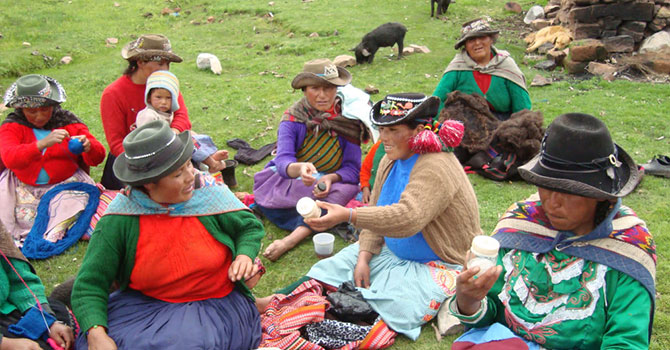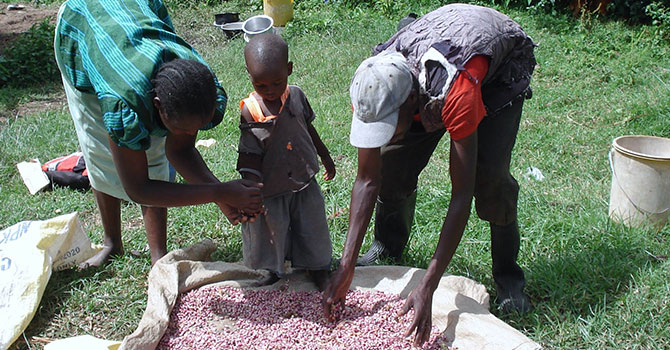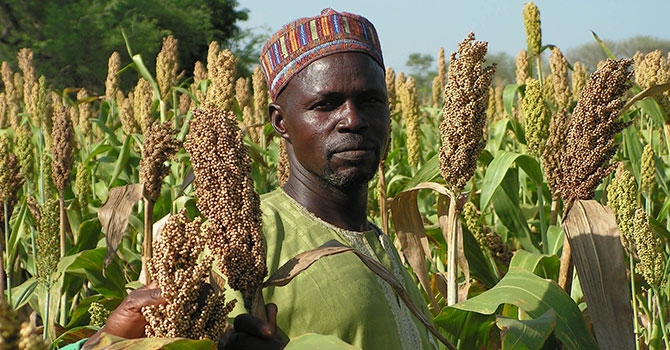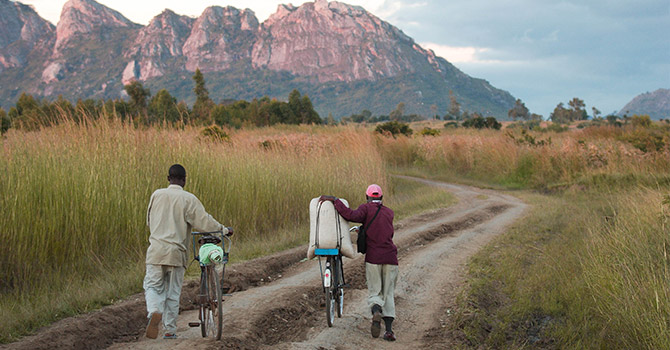The McKnight Foundation’s Global Collaboration for Resilient Food Systems (CRFS)—formerly called the Collaborative Crop Research Program (CCRP)—cultivates resilient food systems globally by bridging farmer-centered agroecological research, action, and influence.
Two intertwined strategies, one regional and one global, advance this goal. We believe that by bridging grounded knowledge and initiatives to global and cross-national processes, we will increase the likelihood that agroecological transformation will be supported by global funding flows, policies, and research norms and agendas.
- Strategy 1: Accelerate local and regional food systems transformation by scaling co-created agroecological knowledge and practice.
- Strategy 2: Influence global and cross-national funding flows, policies, and research norms and agendas to enable agroecological transformation.
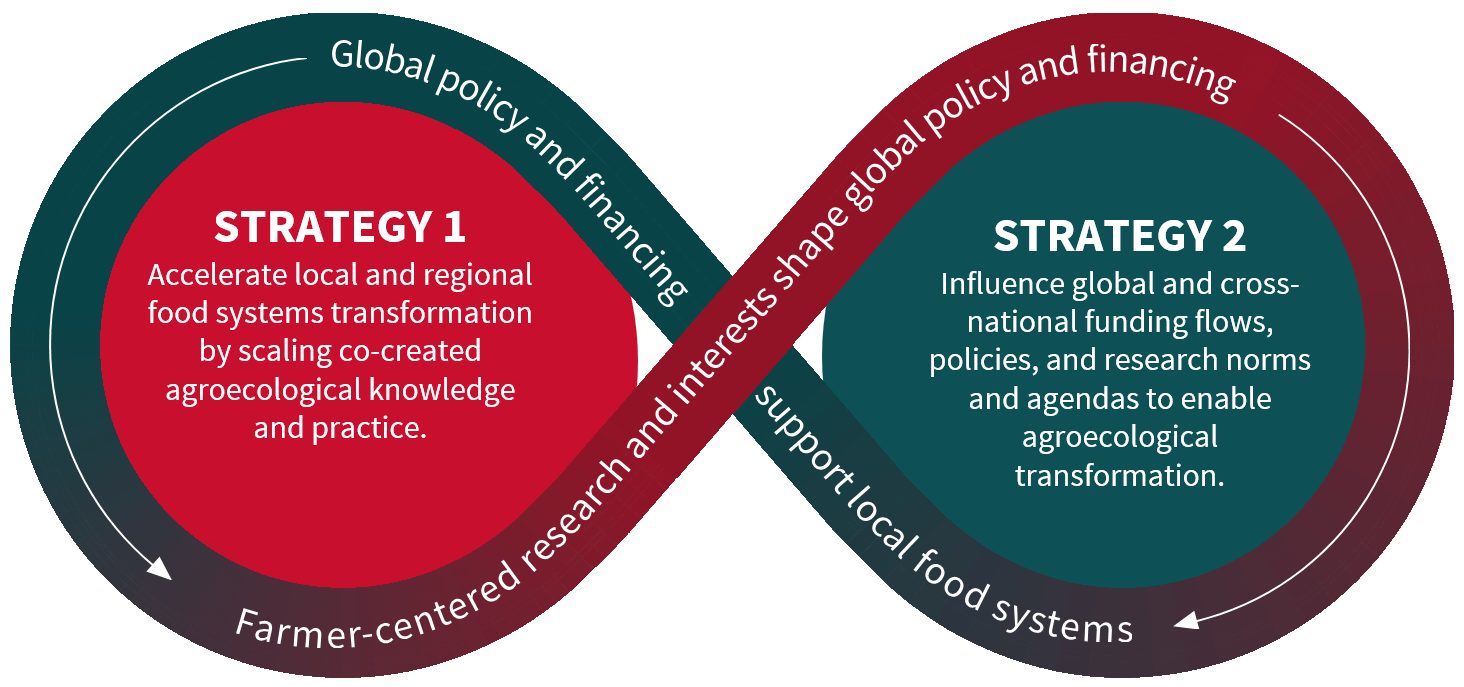
The program primarily funds participatory, collaborative research on agroecology. Grants support research and action in three regional communities of Practice (CoP) in Africa and South America. Regional projects typically link international, national, and/or local organizations with communities of smallholder farmers, researchers, development professionals, and other stakeholders. The program also funds cross-cutting projects that support aspects of work across the three regions or address global opportunities to influence the enabling environment. Our projects generate technical and social innovations to improve productivity, livelihoods, nutrition, and equity for farming communities. Large-scale impact is realized when new ideas, technologies, or processes are adapted to different contexts, when insights from research catalyze change in policy and practice, and when innovation inspires further success.
Communities of Practice & Cross-Cutting Efforts
We focus on three regions of inconsistent food security, funding projects that complement and enhance regional and programmatic grant portfolios. We use a Community of Practice (CoP) approach, in which grantee partners and other people and organizations with a common commitment to agroecology interact regularly to improve their work. Our CoP model emphasizes networking, learning, and collective action. More specifically, the regional CoPs aim to facilitate collaboration, knowledge co-creation, and innovation/information exchange. They also help strengthen capacity at regional, institutional, project, and individual levels. Learning exchange occurs within, between, and beyond the three geographic CoPs. In each CoP region, farmer research networks (FRNs) bring together farmer groups, research institutions, development organizations, and other relevant stakeholders in a co-created process of sharing and building knowledge.
